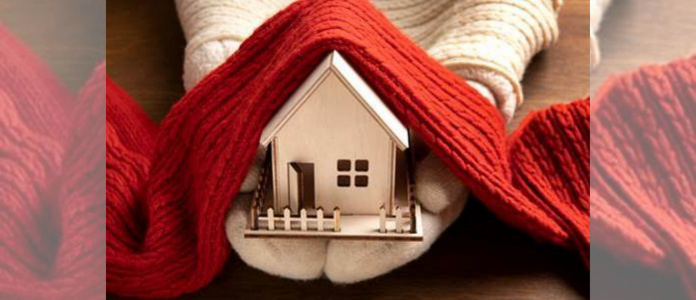With the ever-increasing living costs and interest rate, you need to be smart about beating the winter blues and staying warm without blowing the budget.
The trick to saving money this winter is proper planning to prevent common problems from occurring during the colder months before they spiral out of control financially.
We gathered these three, clever winter preparation tips from DirectAxis to make sure your family stay toasty all winter while saving on costs:
Plan ahead and be prepared:
- Winter calls for firewood, gas and spare batteries. Buy these before the weather turns cold and check your heaters. If any of them are old or broken, now might be the best time to replace them.
- Load-shedding is bound to get worse during winter, so be prepared with alternative power options. If you own a generator, make sure you have enough fuel and that it’s maintained according to the manufacturer’s recommendations. If you have an uninterrupted power supply, check if the batteries are still performing properly.
- Some insurance companies will not cover you if your alarm system stops working because the back-up battery is flat. Consider buying a spare – they don’t last forever.
Prevention maintenance pays off:
- You can do most preventative maintenance yourself at little or no cost, although it’s best to get professional help if you’re unsure how to go about it or don’t have the right tools.
- In winter rainfall areas, simple maintenance includes making sure gutters are clear of leaves and other debris. The weight of water in clogged gutters can break the brackets that support them. The backed-up water also needs to go somewhere. If you’re lucky, it will just pour over the side. If not, the wind can blow it under the tiles, potentially damaging ceiling and fittings.
- Check the roof for missing and broken tiles, any that have shifted or other issues that could result in leaks or the wind getting in and potentially causing more damage. Also bear in mind that heat escapes though the roof, so ensuring it’s well maintained should also help you save on heating bills.
- If you are looking forward to a nice, roaring fire, check your chimney. You should be looking for blockages such as birds’ nests and soot build up. If there does seem to be excessive soot, it’s better to get a professional rather than risking a fire in the chimney.
- Take a walk around the house and check for any trees that might blow over, or branches that could break off and damage the house. You may be able to trim some yourself, but if in doubt, get a professional tree feller.
- While you are doing your walk around, check the perimeter. If you have a fence, has it been tampered with or does it need repaired? Are there shrubs that criminals could hide behind or trees that have grown up and may allow them to access your property? As it gets darker earlier and light later in winter, these are sensible security precautions, particularly as you may not see criminals trying to access your property if your outside lights aren’t working due to load shedding.
Conserving
Whether you’re using a gas or electric heater, a fire or other means of keeping warm, heating costs money.
- Conserve heat and save money by making sure your home is well insulated to help keep the heat in during winter and keep you cool in summer. If you have insulation, check to make sure it hasn’t shifted and isn’t torn or damaged.
- While you’re in the ceiling, check to see if there’s a cover on the geyser. If not, you may want to think about getting one. Heating water is expensive.
- Once you’ve dealt with the roof space, check the doors and windows. It’s relatively cheap and effective to fit self-adhesive rubber strips to the bottom of draughty doors and to fix windows that aren’t sealing properly or repair weather strips. A simple sausage-dog draft excluder is easy to make and will stop cold air getting in under the doors.
- Another tip is to use your curtains. Open them when the sun’s shining and warming the house. Close them when it’s dark and cold. They help prevent warm air escaping.
- Consider the placement of your furniture. It may be great to put a chair in front of the heater, particularly for the person sitting in it, but it may prevent the warm air circulating to the rest of the room.
Advertisement






